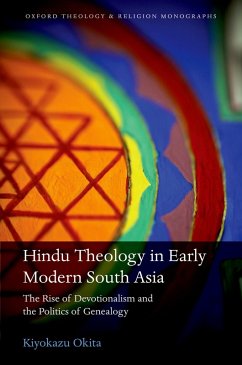Focusing on the idea of genealogical affiliation (samprad?ya), Kiyokazu Okita explores the interactions between the royal power and the priestly authority in eighteenth-century north India. He examines how the religious policies of Jaisingh II (1688-1743) of Jaipur influenced the self-representation of Gau??ya Vai??avism, as articulated by Baladeva Vidy?bh??a?a (ca. 1700-1793). Gau??ya Vai??avism centred around God K???a was inaugurated by Caitanya (1486-1533) and quickly became one of the most influential Hindu devotional movements in early modern South Asia. In the increasingly volatile late Mughal period, Jaisingh II tried to establish the legitimacy of his kingship by resorting to a moral discourse. As part of this discourse, he demanded that religious traditions in his kingdom conform to what he conceived of as Brahma?icaly normative. In this context the Gau??ya school was forced to deal with their lack of clear genealogical affiliation, lack of an independent commentary on the Brahmas?tras, and their worship of Goddess Radha and K???a, who, according to the Gau??yas, were not married. Based on a study of Baladeva's Brahmas?tra commentary, Kiyokazu Okita analyses how the Gau??yas responded to the king's demand.
Dieser Download kann aus rechtlichen Gründen nur mit Rechnungsadresse in A, B, BG, CY, CZ, D, DK, EW, E, FIN, F, GR, HR, H, IRL, I, LT, L, LR, M, NL, PL, P, R, S, SLO, SK ausgeliefert werden.

